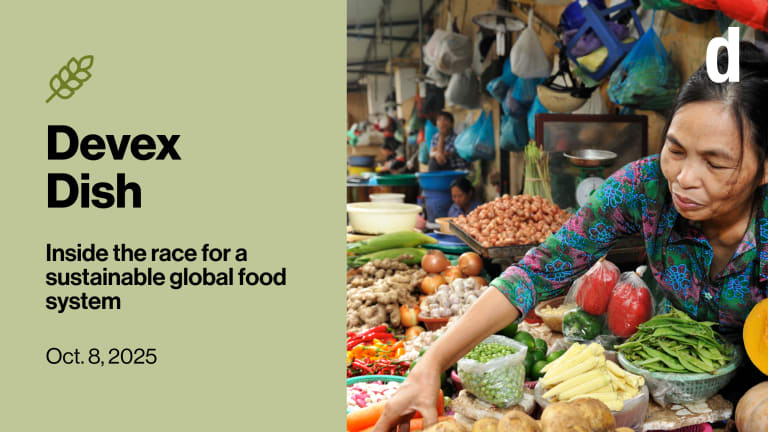
Nutritional advice from family physicians, dieticians partnering with food retailers, and clinicians joining the fight against pesticides — these three actions are becoming more common as the links between health, food, and the environment are increasingly acknowledged by health professionals.
Crucially, these actions break down silos between sectors like agriculture and health care. They also focus on food systems — in other words; how we produce, grow, consume, and waste food.
Means to promote human, animal, and environmental health
New survey data reveals that global health professionals overwhelmingly see food systems transformation as a promising way to promote human, ecological, and animal health and well-being. Furthermore, a majority of respondents agreed that the health sector has a role to play in shaping and contributing to sustainable and resilient food systems.
The survey was commissioned by the Global Alliance for the Future of Food to support a new report targeted at health professionals. It sheds light on the connections between climate change, health and nutrition, and food systems, and shares the stories of 10 food-focused initiatives from around the world that act to benefit all three.
These insights come at time when a new United Nations’ report on the global state of food security and nutrition starkly exposes the fragility of global food systems to climate extremes, the ongoing COVID-19 pandemic, and the deepening food-energy crisis as a result of the war in Ukraine — all of which are exacerbating the rising price of food.

Policy measures targeting food prices and unhealthy diets
This year’s edition of the U.N. report focuses on how policies can be repurposed to make healthy diets more affordable within this complex context. Global health professionals have a few ideas.
According to the aforementioned survey data, nearly two-thirds of health professionals see the opportunity for new or reformed government policies such as subsidies, taxes, product labeling, and marketing restrictions. On the one hand, these could be in the form of increasing soil fertility and diversifying agricultural production through agroecological practices in order to improve food security and tackle climate change in Senegal, or subsidy reforms to support organic farming as we’ve seen in the European Union.
On the other hand, marketing restrictions and taxes on unhealthy foods could be introduced, similar to the 2016 sugar tax levied on the soft drink industry in the United Kingdom.
Similarly, Chile has led the way with taxes and marketing restrictions on ultraprocessed foods, or UPFs. The country’s 2016 “Law of Food Labeling and Advertising” is a set of policies designed to prevent further increases in obesity prevalence.
It focuses on changes to labeling, marketing, and rules regarding sale of unhealthy foods. Food and beverages high in energy, sugar, sodium, and saturated fat content are subjected to marketing restrictions, banned in nurseries and schools, and need to have a national mandatory front-of-package warning label system.
A call for improved education and increased funding
Greater public education about healthy and sustainable diets as well as increased funding for regenerative food production were two other opportunities health professionals highlighted as the top food systems measures to deliver health for humans, animals, and the planet. All would help to reduce the barriers faced in adopting healthy and sustainable diets, including affordability and the prevalence of junk food outlets.
These opportunities would also counteract what health sector professionals identified in the survey as the most urgent threats to global health: climate change, inequities, noncommunicable diseases, and unhealthy diets.
Overall, trends in the data show that there is a growing appetite for health and food sector professionals to work together to advocate for changes that address the drivers and determinants of unhealthy food systems.
The health sector continues to be at the frontline of fighting the world’s greatest challenges. As vital intermediaries, health care professionals can influence government policy in a way that improves the health and well-being of the communities they serve and the planet — including as a means to mitigate further health system fatigue. In a time of global crises, this is a tremendous responsibility and a call to act.








